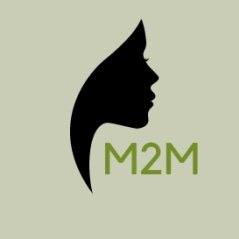Mentoring Cafe: How You Can Benefit as an Independent Scholar
Learn more about the benefits of being an independent scholar.
Two of the most significant approaches to obtaining a doctorate are located with the US and UK. Learn more about both programs below for doctoral candidates of religion.
The US Approach for Doctoral Students
In the former, doctoral students have two years of seminars (or coursework) before they begin to write within their own specialty. Typically, PhDs in Theology, for example, would take 5-7 years.

Because America continues to rely heavily upon exams as a primary structure of education, these occur frequently in many doctoral programs. However, it is possible to opt out of exams in favor of teaching for a small stipend.
Doing this allows doctoral students to populate their CVs with evidence of their teaching ability while also developing confidence in the way they speak about "my students" and "my pedagogical approach." This teaching focused approach in the US is often quite thorough with many doctoral candidates receiving continued support after the degree is awarded.
That continued support is what ensures they move from graduate to a postdoctoral post (reserved for those who have earned their doctorate within the last 5 years), fellowship (some are paid and others unpaid) or a Professorship/Lectureship. US doctoral students produce what is called a "doctoral dissertation" and they are often encouraged to engage in the process of publishing that work.
The UK Doctoral System for Religious Doctoral Candidates
By contrast, the UK system equates the Masters level students with the US doctoral students. Their Masters level students produce a written research paper called a "dissertation," but their doctoral students produce a "doctoral thesis" as their research paper. In the UK, prospective students from other countries are often required to take a one year Masters Degree course first and then pass an oral examination or "Board Review." If successful, they are then able to start their PhD program by writing their thesis with the assistance of 1-2 supervisors. Most academics readily admit that it can take 2-3 years for people who have recently obtained their PhDs to actually land a position.

In both instances, it is becoming more common to see scholars with recently bestowed PhDs feeling a bit lost. They may feel they struggle to secure support from people who are "too busy" to write a letter of support. There is a sense that their futures were mortgaged with high-interest loans that, without a secure source of income, can never be satisfied.
Economic Precarity
This creates both economic precarity and inner turmoil - what are you to do with your life next? How can you use that training about which you are passionate?
And, if you are a doctoral student, what can we share today, to help make you stronger by the time you complete your program?
Independent Scholars
One option is to prepare yourself to be an Independent Scholar. The paid posts for this "job" will include: Visiting Scholar, Research Fellow and Teaching Fellow. If you are prepared to become an Independent Scholar, there are myths with which you should be acquainted so that they do not become obstacles.
While being an "independent" means you are on the margins, it doesn't mean your contributions lack relevance. On the contrary, you can work across the hall from a Junior Lecturer who has to teach five classes, engage with extensive marking systems, meet students, and spend time on committees.
Benefits for Independent Scholars
Those colleagues who have a full time lectureship, for example, are still expected to produce academically rigorous writings, conduct original research and speak at conferences. You are an independent scholar who has to just produce the writing and research. You do not have to meet with students, and you are not marking papers (unless you are working as a Teaching Fellow). You use your immediate funding to provide support for your research projects.
The university where you are a Research Fellow or Visiting Scholar will provide you with support including: copy machine access, WiFi and unfettered access to both online and physical libraries, a team to assist you with your grant writing (usually at least two colleagues who provide content review of your work and suggestions, and also someone who will construct the budget for you).
Built-in Supports
When you speak of your "team" it allows you to understand that you are managing the priorities of the research project. In this way, being "independent" may not be the actual goal. Perhaps the "interdependence" is more of a goal because you support your community by participating in their work in progress seminars, and you receive supports to achieve your grant capture and publication goals.
When applying for grants, your design is the focus of that team. If you are in a school which has a 90% success rate in obtaining grants, then you also have access to sample grant proposals - the ones which were successful in obtaining the funding. These serve as a template for you.
Academic Outputs or Deliverables
By the end of the year, you have produced at least one or two work in progress seminars, you have traveled to conduct archival research and can make those original contributions to discourse with confidence, and you have at least one or two peer reviewed journals who have expressed an interest in publishing your work.
In fact, you may find a few opportunities being presented to you as your reputation grows. Most of my colleagues admire the time I can spend on writing. (Of course, if I am still applying to grants, I admire the steady paycheck that they have - and nothing beats security!)
How You Can Proceed
So, what do I advise students do to help strengthen their chances of landing on their feet - even if they are not selected for a professorship upon graduation? First, when you attend the conferences where you are speaking (while a student), think about how you will build community. I had a colleague who would often speak at the same conferences as me. Whenever I spoke, he was always in the front row - and I did the same for him. We became allies across gender and race.
He later became a very supportive friend when he secured a position (as a Scottish man in Scotland) whereas I was still trying to prove my relevance as a Black woman. There are many people who will be happy to return your good will and provide support by writing letters for you, sharing opportunities that come up (for publishing, grants and for jobs).
That said, you have a great deal of freedom when you are able to secure grants and produce your own work, leveraging that work against your claims that you are a scholar with whom the world must reckon!
Second, while you are a student, apply for smaller grants geared for students and solicit your supervisor's support. In addition, you can let your supervisor know you would like to be considered as a research assistant on an upcoming grant. The supervisor may be able to use your skills, or another colleague may need your assistance. It's important to learn as much as possible about how to satisfy funder requirements, the "language" that funders prefer to see and the way you can shape your priorities to help meet their objectives and goals.
Third, read and writing as part of your daily practice. Even if you take a non-academic job to pay your bills after you graduate, you can continue working as an independent scholar. Set aside at least 10 hours/week to keep your skills sharp.
While we are trying to fill the gap of Black women's voices, often missing in religious scholarship within the UK, her observations and tips are beneficial to scholars of all kinds.

Call to Action
While we offer both free and paid subscriptions, we do ask that you will at least support us by clicking "like" (the heart icon) and sharing the post with others today. We also ask that you join us on: Substack, Twitter @misogynoir2mishpat and Facebook.
The Misogynoir to Mishpat (M2M) Research Network © 2023






